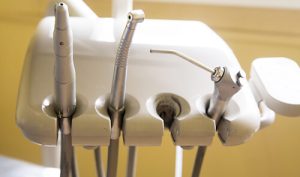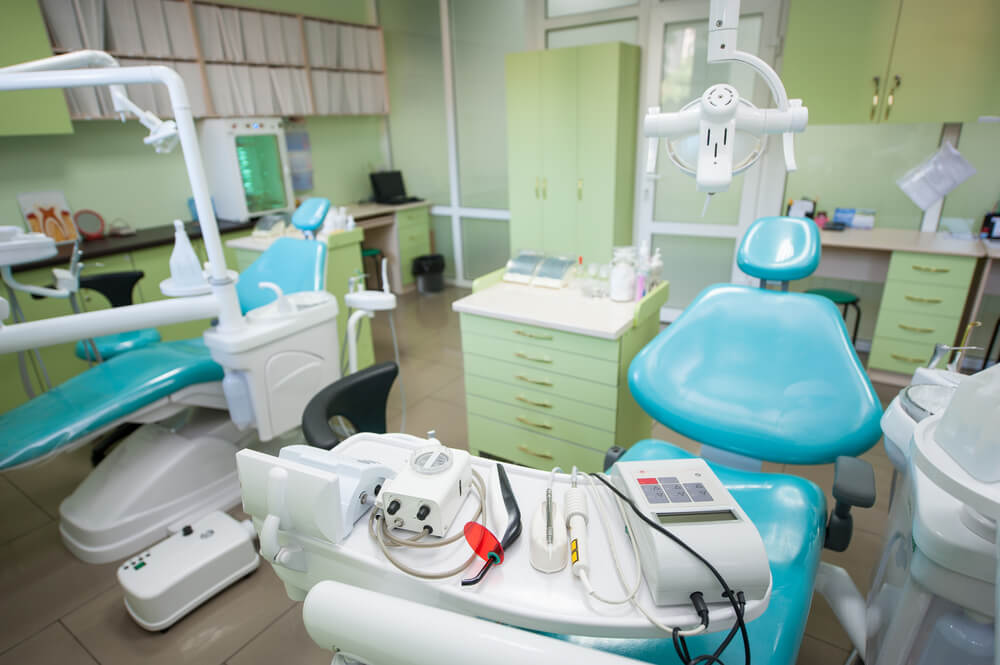In the bustling world of dental practices, the last thing you need is a raucous chorus of machine noises. Enter the realm of the quiet air compressor, the cutting-edge technology changing the landscape of dentistry. Designed with care, this dental compressor brings both a reduction in noise and a boost in performance, allowing for a more peaceful and efficient environment. Now, dental practitioners can provide their services with ease and tranquillity that resonates through their workspace, enhancing patient comfort and staff productivity. This is more than just a tool; it’s a revolution quieting the clamour of dental procedures one operation at a time.
Understanding the importance of an air compressor in dental clinics
Air compressors are indispensable in dental clinics, acting as the heart of the operations. They provide clean, dry, pressurised air to operate various tools and equipment. Dental compressors provide the power needed for these essential tasks, from delicate scalers for cleaning and polishing teeth to high-speed handpieces for drilling and restoration.
Moreover, air compressors are integral in providing a sterile environment. They supply air to autoclaves to sterilise instruments and to air-water syringes for cleaning and drying the patient’s mouth during procedures.
With the advent of quiet air compressors, the significant role of these machines in dental clinics is now accompanied by a reduced noise level. This offers a more comfortable atmosphere for both patients and staff. It contributes to patient relaxation and stress reduction, crucial factors in a field where many patients already harbour anxiety about their visits.
In essence, the air compressor, especially the quiet air compressor, is more than just a power source. It is a pivotal element in providing quality dental care and enhancing the overall experience in dental clinics.
The benefits of owning a quiet air compressor
Owning a quiet air compressor comes with many benefits, especially in settings where silence or minimal noise is highly valued, such as dental clinics, workshops, or even home garages. Here are some of the key benefits:
 Reduced Noise Levels: The most apparent advantage of a quiet air compressor is the significant noise reduction. Compared to traditional models, these compressors operate at a decibel level that is more comfortable for human ears, reducing the risk of noise-induced hearing loss and enhancing communication among team members.
Reduced Noise Levels: The most apparent advantage of a quiet air compressor is the significant noise reduction. Compared to traditional models, these compressors operate at a decibel level that is more comfortable for human ears, reducing the risk of noise-induced hearing loss and enhancing communication among team members.- Improved Patient Experience: In dental clinics, the quiet operation helps to foster a calmer, more peaceful environment. This can ease patients’ anxiety, making their visit to the dentist a more comfortable experience.
- Enhanced Work Environment: A quieter workspace can lead to increased productivity. Workers can concentrate better on tasks and communicate more effectively with colleagues and clients with less noise.
- Greater Flexibility: Quiet air compressors can be used in various settings, even where noise could be a nuisance, such as in residential areas or during late hours.
- Energy Efficiency: Many quiet air compressors are designed to be more energy-efficient than their louder counterparts. This can translate into savings on utility costs over the unit’s life.
- Reduced Vibration: Quiet air compressors often have lower vibration levels, leading to less wear and tear on the equipment, extending its lifespan, and requiring less maintenance.
Owning a quiet air compressor is not only an investment in a tool but also an investment in the quality of the working environment, the comfort of clients or patients, and, potentially, long-term cost savings.
Factors to consider when purchasing a quiet air compressor
When purchasing a quiet air compressor, several factors should be considered to ensure you select a model that fits your specific needs. Here are some key considerations:
- Noise Level: Consider the decibel (dB) rating of the compressor. This measures the noise output, so lower dB ratings mean a quieter operation. Quiet air compressors typically operate at around 60 dB, similar to a normal conversation.
- Capacity and Pressure: Look at the tank capacity and the amount of pressure the compressor can deliver (measured in pounds per square inch, or PSI). These will determine how well the compressor will perform in your specific application. Dental clinics, for example, may require compressors with different capacities and pressures than home workshops.
- Air Quality: For dental and medical applications, the quality of the air delivered by the compressor is crucial. It must be clean, dry, and free from oil and other contaminants. Some compressors have built-in dryers and filters to ensure the air quality meets these requirements.
- Size and Portability: If space is an issue, consider the size of the air compressor. Also, some models come with wheels or are lightweight enough to easily move around if portability is required.
- Energy Efficiency: An energy-efficient model can save on electricity costs in the long run. Consider models with automatic start/stop features and those designed to operate more efficiently.
 Maintenance Requirements: Some air compressors require more maintenance than others. Consider the maintenance requirements, such as oil changes and filter replacements, and how easy it is to perform them.
Maintenance Requirements: Some air compressors require more maintenance than others. Consider the maintenance requirements, such as oil changes and filter replacements, and how easy it is to perform them.- Price: As with any purchase, cost is a significant factor. Be sure to compare the prices of different models and consider what features and performance you’re getting for the price.
- Warranty and Support: A good warranty can provide peace of mind. Also, consider the manufacturer’s reputation for customer support if you need help or repairs.
Considering these factors, you can make an informed decision when purchasing a quiet air compressor, ensuring it meets your needs and provides a worthwhile return on investment.
Tips for maintaining your quiet air compressor in optimal working condition
Maintaining your quiet air compressor in optimal working condition is crucial for its performance, longevity, and safety. Here are some tips to ensure your air compressor remains in top shape:
- Regular Cleaning: Dust and dirt can accumulate on the compressor, leading to overheating and premature wear. Regularly clean the external parts of the compressor with a soft, dry cloth.
- Check and Change Filters: Depending on the usage, filters can become clogged over time. This reduces the air quality and the efficiency of the compressor. Regularly check and replace air filters as necessary. Follow the manufacturer’s recommendations for frequency.
- Drain the Air Tank: Condensation can accumulate in the air tank, especially in humid environments. This moisture can cause internal rusting. To prevent this, regularly drain the tank. There’s usually a valve at the bottom for this purpose.
- Inspect Hoses: Regularly check the hoses for cracks, leaks, or wear and tear. Damaged hoses can affect the compressor’s efficiency and are a potential safety hazard.
- Change the Oil: If you have an oil-lubricated compressor, it’s important to check the oil level regularly and change the oil based on the manufacturer’s recommended schedule.
 Belt Tension: If your compressor uses a belt-driven motor, ensure the belt is properly adjusted and not excessively worn. Incorrect tension or a worn-out belt can lead to inefficiencies and potential failures.
Belt Tension: If your compressor uses a belt-driven motor, ensure the belt is properly adjusted and not excessively worn. Incorrect tension or a worn-out belt can lead to inefficiencies and potential failures.- Regularly Test Safety Systems: Test safety shut-off systems and pressure relief valves regularly to ensure they work correctly. This helps to prevent accidents and equipment damage.
- Professional Service: Depending on the complexity of your compressor, it may require professional service from time to time. Have a certified professional inspect and service your compressor at recommended intervals.
Remember, silent air compressors are different, so always refer to your owner’s manual for specific maintenance instructions. Regular care and attention can keep your quiet air compressor running smoothly and quietly for years.
References:
https://www.medicalexpo.com/medical-manufacturer/silent-compressor-43689.html
https://www.quincycompressor.com/sound-reduction-air-compressors/
https://compressors.cp.com/en-us/compressor-noise
https://www.soundproofcow.com/tips-reducing-noise-portable-air-compressor/



